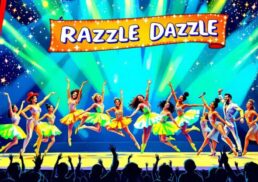Wondering what 2 year olds developmental milestones your child should be reaching? At this age, children typically start walking with confidence, saying a few words, and showing interest in playing with others. This article will help you understand these key milestones in physical, cognitive, language, social, and emotional development, and guide you on what to look for as your toddler grows.
Table of Contents
Key Takeaways
2-year-olds hit key milestones in physical, cognitive, language, and social development, like walking confidently, solving simple puzzles, and starting to form sentences.
Tracking these developmental milestones helps parents identify any delays and ensure their child is growing healthily. If concerns arise, consulting a pediatrician is crucial.
Encouraging your child’s development involves engaging in creative play, providing outdoor activities, and nurturing a loving environment, which supports their overall growth and emotional security.
Introduction
Remember the first time your little one smiled at you? That magical moment was just the beginning. Developmental milestones are those significant abilities and skills that children typically achieve at certain age ranges, and they give us crucial insights into how our children play, learn, speak, act, and move. From that first contagious giggle to the joyous day when they take their first independent steps, milestones mark the wondrous journey of growth and discovery.
But how do you know if your child is on track? That’s where the art and science of tracking developmental milestones come into play. Standardized developmental screening tools are available to help you understand your child’s progress. By keeping an eye on these milestones, you’re not just witnessing their growth—you’re also ensuring that any developmental delays or concerns are identified early on, giving your child the best start in life. Some key developmental milestones to track include:
Rolling over
Sitting up
Crawling
Walking
Talking
Social interaction
By monitoring these milestones, you can ensure that your child is reaching important developmental markers and address any concerns that may arise.
Physical and Motor Skills Milestones
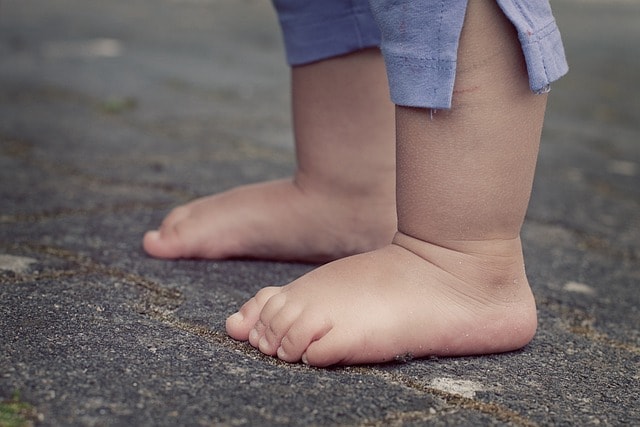
When it comes to physical and motor skills, 2 year old children are like little explorers conquering the vast terrain of their world. At this stage, your toddler should be:
walking with confidence
attempting to run
climbing stairs while holding your hand
kicking a ball without losing their balance
These are the milestones your child should be reaching, and they are as thrilling for you to witness as they are for your child to achieve.
But why are these physical feats so important? Each leap and bound represents a leap in your child’s progress, cementing the building blocks for future skills and coordination. And let’s not forget the sheer joy and laughter that comes with child play—those moments when your little one proudly shows you how they can throw a ball overhand or stack four blocks into a wobbly tower.
As parents, it’s exciting to see our children gain skills earlier than we expect. But even if they’re taking a bit longer, each child develops at their own pace. That’s why understanding and encouraging physical activity and celebrating each new motor skill is pivotal. It’s not just about keeping them moving; it’s about nurturing their overall development, including social and emotional growth.
Cognitive Development Milestones
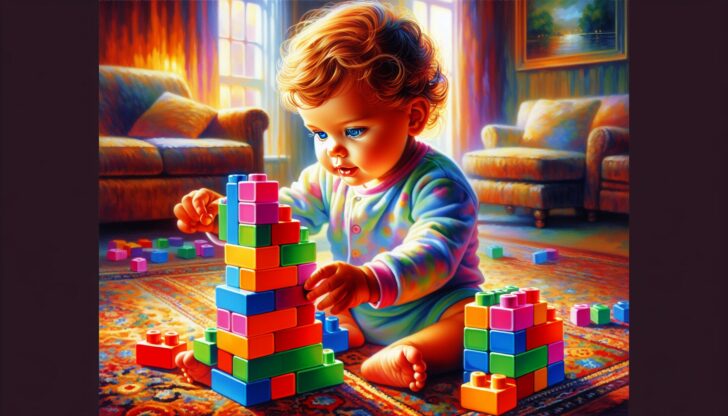
Have you ever watched in amazement as your child sorts shapes or tackles a simple puzzle? These are the cognitive development milestones that come into play around the age of two. The way toddlers begin to sort shapes and colors, build with four or more blocks, and solve simple puzzles are all indicators of their blossoming thinking skills.
Cognitive development in toddlers is all about curiosity and problem-solving. They start to understand two-step directions like “pick up your teddy bear and give it a hug,” showcasing their ability to remember and follow simple instructions. And when your child gives reasons for things, such as needing a coat because it’s cold, they are not just making connections but also communicating their understanding of the world around them.
Interactive play with common objects, puzzles, and blocks are more than just fun activities; they are essential exercises for the mind. As your child develops these cognitive skills, they’re also laying the groundwork for future learning. So the next time your little one insists on finding a hidden toy or proudly completes a puzzle, know that these are significant cognitive milestones your child is reaching.
Language and Communication Milestones
The chatter of a two-year-old can be music to a parent’s ears, even when it’s a string of incomprehensible babbles. By the age of two, most toddlers will have a vocabulary of around 50 words and start to form two to four-word sentences. It’s a time when they’re not just learning new words but also beginning to communicate their thoughts and feelings.
Language development is a cornerstone of a child’s progress. As they move from repeating words to forming word sentences, toddlers are also practicing the art of conversation. They might ask simple questions like “Why?” and “How?” showing their growing curiosity and desire to engage with others. And while their speech may not always be clear to especially adults, the effort they’re putting into talking is monumental in their development.
Encouraging your child’s language skills is about more than just expanding their vocabulary. It’s about nurturing their ability to express themselves and connect with the world. Whether through telling stories, singing songs, or simply chatting about the day, every word shared helps build the communication milestones your child is striving to reach. Being mindful of not using repeat words can also contribute to their language development.
Social and Emotional Milestones
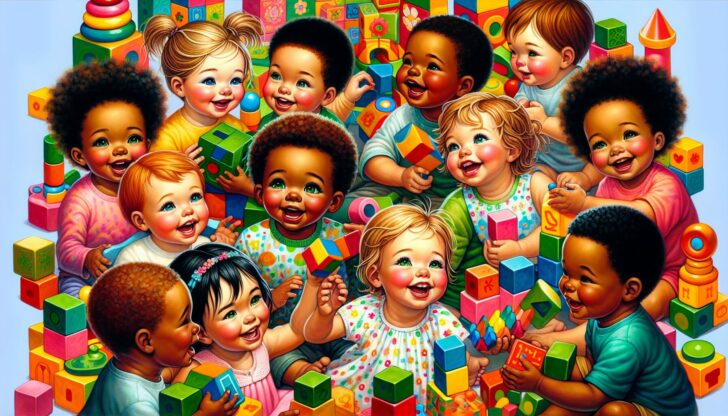
The social and emotional milestones of a two-year-old are like the colors of a vibrant painting—they add depth and richness to your child’s developing personality. At this age, you’ll find your toddler imitating others, showing affection, and sometimes even asserting their independence with a little defiant behavior. These behaviors are not just adorable but are considered normal signs of development.
Watching your child play with other children, you’ll notice the excitement and joy that comes from social interaction. It’s in these moments that toddlers learn to share, take turns, and build friendships, all of which are crucial for their emotional development. And while they may start to show more independence and even defiance, this is simply a part of their journey towards self-discovery and asserting their individuality.
It’s a joy to see your child sing songs with older children or tenderly care for a teddy bear, as these moments reflect the emotional milestones your child is reaching. Whether it’s through playdates or group activities with familiar people, fostering these social and emotional skills is key to helping your child navigate the world confidently and compassionately.
When to Consult a Pediatrician
It’s natural for parents to wonder if their child is developing on track, and sometimes there may be reasons to seek professional advice. If you notice that your child is not meeting developmental milestones or has lost previously acquired skills, it’s crucial to consult a pediatrician. Developmental screening at recommended ages is an essential part of ensuring your child’s well-being.
Pediatricians use standardized, validated tools to get a clear picture of a child’s progress, and these screenings can help identify areas where a child may need additional support. If concerns arise, early intervention programs can offer tailored assistance to help your child catch up. And if you’re still worried after consulting your doctor, don’t hesitate to ask for a referral to a specialist who can offer further guidance.
Remember, most toddlers develop at their own pace and may reach certain milestones earlier or later than their peers. However, staying informed and proactive about your child’s progress is a critical part of being a supportive and engaged parent, ensuring you are aware of your child’s progress at every stage.
Encouraging Your Child’s Development
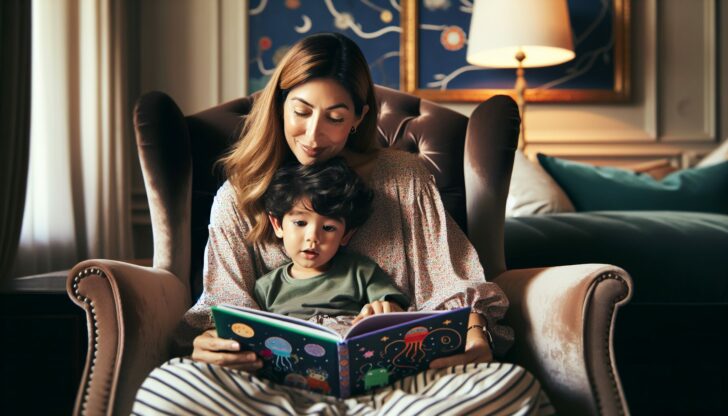
As a parent, you’re not just a caretaker; you’re the maestro of your child’s development. Engaging in simple make-believe games, storytelling, and singing can turn everyday moments into opportunities for growth. These pretend play activities stimulate your child’s imagination, language development, and cognitive abilities, laying the foundation for a lifetime of learning.
Outdoor play is another avenue for encouraging your child’s development. Some benefits of outdoor play include:
Honing gross motor skills through activities like running, jumping, and playing catch
Fostering a love for physical activity
Developing fine motor skills through art activities or simple cooking tasks
Introducing concepts like sequencing and cause and effect
So, make sure to provide opportunities for your child to engage in outdoor play and creative activities to support their overall development.
Every toy, every book, and every playdate is a chance for your child to learn and grow. By providing a variety of experiences, from pulling toys to exploring nature, you’re not just entertaining your child—you’re helping them develop the skills they need to thrive.
Sleep and Nutrition Needs
As much as play and learning are essential, so are sleep and nutrition for your growing toddler. With the hustle and bustle of exploring and learning, two-year-olds need about 11-14 hours of sleep per day, including naps, to recharge and process all that new information. The transition from two naps to one typically occurs during this period, adapting to your toddler’s changing needs.
When it comes to nutrition, a balanced diet fuels all the running, thinking, and growing that two-year-olds do. If you have any concerns about your child’s eating habits or nutritional intake, don’t hesitate to consult a pediatrician. They can provide guidance to ensure your child is getting the nutrients they need to develop healthily.
Enhancing Learning and Emotional Security
Creating a secure and loving environment is the bedrock for enhancing learning and emotional security in your two-year-old. When a child feels safe and confident, they’re more likely to be independent and well-behaved. Interactive play is not just a way to pass the time; it’s a powerful tool to boost your child’s learning and development.
By incorporating several toys and activities into your child’s routine, you stimulate their interest and curiosity, which are essential for learning. Whether it’s:
building a tower of blocks
splashing in a water table
playing with puzzles
drawing and coloring
playing with playdough
Each activity supports the development of critical skills from motor coordination to problem-solving, involving various body parts.
And let’s not forget the emotional aspect. A child who knows they’re loved and supported is more likely to take risks, explore, and ultimately, learn. By providing a nurturing environment, you’re not only enhancing your child’s learning but also ensuring they feel emotionally secure to face the challenges and joys of growing up.
Learn more, visit Your toddler’s developmental milestones at 2 years.
Summary
As we’ve journeyed through the developmental milestones of two-year-olds, from their first wobbly steps to their curious questions, it’s clear that each milestone is a stepping stone to the next. Whether your child is stacking blocks with precision or stringing words into sentences, every achievement is a cause for celebration and a sign of the incredible potential within them.
So take heart, parents. With your love, guidance, and a watchful eye on these developmental milestones, you’re providing your child with the tools they need to grow, learn, and flourish. Embrace each moment, from the messy to the miraculous, and remember that in these early years, every small step is a giant leap towards the future.
Frequently Asked Questions
How can I tell if my child is developing normally for their age?
You can tell if your child is developing normally for their age by monitoring their progress against developmental milestones like motor skills, language, and social interaction. If you’re worried, consider using standardized developmental screening tools or consult with a pediatrician.
What are some simple activities to support my child’s development?
Singing songs, outdoor play, reading books, and playing with blocks are great activities that can support your child’s development in multiple areas. So, give these a try and see how your child enjoys them!
When should I transition my child from two naps to one?
You should transition your child from two naps to one when you notice signs of readiness, like difficulty falling asleep or staying asleep for morning naps. It’s a natural step for growing toddlers.
How can I create a secure and loving environment for my child?
To create a secure and loving environment for your child, it’s important to consistently respond to their needs, spend quality time with them, and establish a balanced routine. This will help them feel safe and nurtured, encouraging healthy development. No date
What should I do if my child isn’t talking as much as other children their age?
If you’re worried about your child’s speech development, it’s best to consult a pediatrician for an evaluation or a referral to a speech therapist. It’s important to address any concerns you may have about your child’s speech development.

